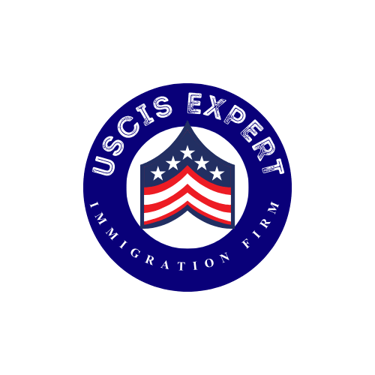R-1 Visa: Religious Worker
Serving Faith Communities Across the United States
The R-1 visa is a nonimmigrant visa that allows qualified foreign nationals to enter the United States temporarily to work as ministers or in other religious vocations or occupations for a bona fide nonprofit religious organization.
The R-1 visa plays a vital role for churches, synagogues, mosques, temples, and other faith-based organizations that need to bring international clergy and religious workers to serve their communities.
✅ What Is the R-1 Religious Worker Visa?
The R-1 visa is for foreign religious workers coming to the U.S. to:
✅ Work as a minister of religion (ordained clergy authorized by a recognized religious denomination to conduct religious worship and perform duties usually performed by clergy).
✅ Work in a religious vocation (such as nuns, monks, or religious brothers and sisters engaged in a lifelong commitment to a religious way of life).
✅ Work in a religious occupation (performing duties directly related to a traditional religious function — such as religious instructors, cantors, missionaries, or liturgical workers).
The sponsoring organization must be a nonprofit religious organization or an affiliate of a religious denomination recognized as tax-exempt under U.S. law.
✅ Who Qualifies for the R-1 Visa?
For the Religious Organization (Petitioner):
✅ Must be a bona fide nonprofit religious organization in the U.S. or a recognized affiliate.
✅ Must be able to demonstrate sufficient resources to compensate or support the religious worker.
✅ Must be registered with USCIS to file a Form I-129, Petition for Nonimmigrant Worker for an R-1 visa.
For the Religious Worker (Beneficiary):
✅ Must have been a member of the same religious denomination as the petitioning organization for at least two continuous years immediately before filing.
✅ Must be entering the U.S. to work at least 20 hours per week in a qualifying religious role.
✅ Must work as a minister or in a religious vocation or occupation as defined by USCIS.
✅ Key Features of the R-1 Visa
✅ Initial Stay: Valid for up to 30 months (2.5 years) initially.
✅ Extensions: Can be extended for up to an additional 30 months, for a maximum stay of 5 years in total.
✅ Dependents: Spouses and unmarried children under 21 may accompany the R-1 holder under R-2 status. R-2 dependents cannot work in the U.S. but may study.
✅ Pathway to Green Card: Many R-1 visa holders later pursue a green card through the EB-4 Special Immigrant Religious Worker category.
✅ The R-1 Visa Process — How It Works
📌 Step 1 — File Form I-129:
The U.S. religious organization files Form I-129 with USCIS, providing evidence of the organization’s nonprofit status, the job offer, and the worker’s qualifications and denomination membership.
📌 Step 2 — USCIS Site Visit:
USCIS will generally conduct a pre-approval inspection to verify that the organization is legitimate and that the work location exists and meets requirements.
📌 Step 3 — Consular Processing or Change of Status:
If the worker is outside the U.S., they must apply for an R-1 visa at a U.S. embassy or consulate. If they are already in the U.S. in another status, they may apply to change status if eligible.
📌 Step 4 — Begin Work:
Once approved and admitted, the R-1 worker may begin employment for the sponsoring religious organization in their authorized religious role.
✅ Examples of Qualifying R-1 Workers
✅ Pastors, priests, rabbis, imams, or other ordained clergy.
✅ Missionaries and evangelists working under a recognized denomination’s authority.
✅ Nuns, monks, or religious brothers and sisters who have taken vows.
✅ Religious educators or instructors in seminaries or faith-based schools (when duties are primarily religious).
✅ Liturgical workers, cantors, or music ministers with primary religious duties.
✅ How USCIS Expert Helps
Applying for an R-1 visa requires careful documentation to show the worker’s eligibility, the organization’s nonprofit religious status, and compliance with USCIS rules. Many cases are delayed or denied due to incomplete or inconsistent evidence.
USCIS Expert helps you:
✅ Prove nonprofit status and religious affiliation.
✅ Demonstrate the worker’s continuous membership in the denomination.
✅ Gather detailed job descriptions and compensation arrangements.
✅ Prepare for USCIS site inspections and compliance.
✅ Assist with renewals, extensions, or green card options under EB-4 if eligible.
Bring Faith-Based Talent to Serve Your Community
The R-1 visa enables religious organizations to strengthen their missions by welcoming qualified ministers and religious workers from around the world. USCIS Expert guides you through every step — from initial petition to arrival — so your mission can grow with confidence.
Contact us today to learn how to sponsor a religious worker under the R-1 visa program.
Support
Your trusted partner for immigration and visas.
info@uscisexpert.com
+1 (800) 707-0510
© 2025. All rights reserved.
